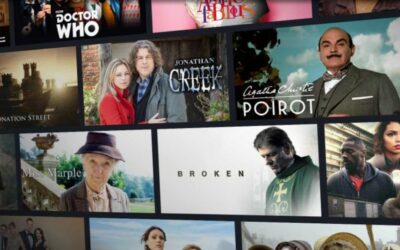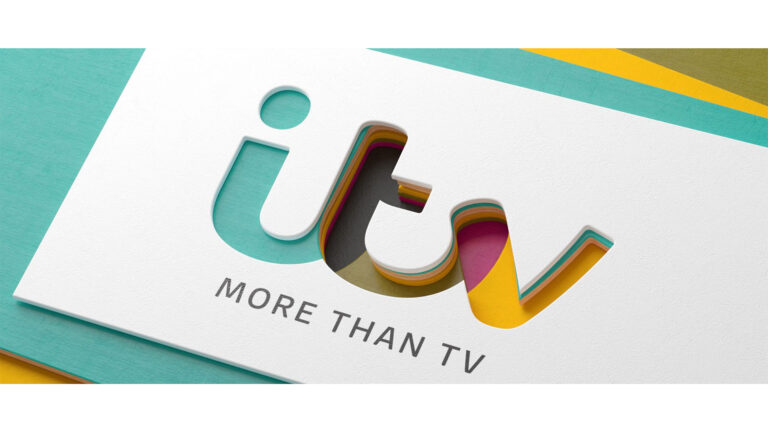ITV has released its annual results this morning, with a focus on digital, global production and “social purpose.”
The group saw revenues increase 3% over the period, to £3.3bn, but advertising fell 1.5% – although this was better than anticipated. Its adjusted EBITA fell 10% from £810m to £729m.
The results showed that ITV Studios’ organic revenue was up 9% and it had a “solid pipeline” of new and returning shows.
It online revenue rose 21%, with Video on Demand (VOD) viewing up 13%. The company also rolled out its programmatic addressable advertising platform, Planet V.
“ITV delivered a good performance in 2019 in spite of the uncertain economic and political environment. Full year results were ahead of expectations and we made good progress in executing our strategy to build a digitally led media and entertainment company,” said Chief Executive, Carolyn McCall.
“We are growing our stable margin Studios business, transforming Broadcast and expanding our Direct to Consumer business. The investments in our strategic priorities are delivering. We are strengthening our creative talent in ITV Studios; accelerating the growth of ITV Hub; rolling out Planet V, our addressable advertising platform; strengthening our data and tech capabilities; and we successfully launched BritBox UK.
“We are very focused on building a stronger, more diversified and structurally sound business. The media market is changing rapidly and our strategy continues to evolve to position ITV to take advantage of the opportunities in advertising video on demand (AVOD) and streaming, while mitigating the effect of competition for viewing.”
ITV stated its purpose was to be “More than TV” by investing in regional creative economies and “contributing to the health of democracy, providing trusted, impartial and high-quality local and national news. It is our purpose and our culture which defines our organisation and everything we do.”
Looking forward to the changing market as more people using VOD, it said that its strategic vision was to be a “digitally led media and entertainment company that creates and brings our brilliant content to audiences wherever, whenever and however they choose.”
This it intends to do by:
- growing UK and international production;
- transforming its broadcast business and;
- expanding its direct-to-consumer activities.
It explained that ITV Studios was on track to deliver 10,000 production hours by 2021 – although 2019 was hit by the cancellation of The Jeremy Kyle Show. Internationally it sold 62 formats and 58% of ITV Studios’ revenue was generated outside of the UK.
Its broadcast business was being “transformed” by repositioning the brand to drive more “light viewers” and increase reach. Again it said that the loss of Jeremy Kyle had impacted on this, but that it achieved 98% of all commercial audiences over five million as well as key demographics, with 16-34’s SOV on ITV2 up 6%.
Online viewing was up 13%, with a 6% increase in dwell time and 28% increase in monthly active users.
The company has 31m registered users of the ITV Hub – which is ahead of its original 30m by 2021 target.
ITV has also invested in technology, with updates to the digital video platform which supports the ITV Hub, ITV Hub+ and BritBox. It has also designed and built Planet V with its tech partner, Amobee.
Finally, it plans to expand direct to consumer activities through BritBox UK, with the operation now on 10 platforms, making it available to 15m UK TV screens.
ITV Hub+ has more than 400,000 subscribers which is up over 50% year-on-year, and BritBox US has over one million subscribers “and is profitable.”
It is also driving revenue through its competition portal, ITV Win, and releasing merchandise around its key brands.
The company also said that it was investing in a Social Purpose strategy, to “shape culture for good.”
It explained that it had identified a number of priority areas to make a difference, both on and off-screen.
These are “inspiring change in how people look after mental and physical health”; creating programmes with the “biggest impact on the audience and the smallest impact on the planet”; giving back to local and international communities; and embracing diversity and encouraging inclusion.
Last year it launched an on-air campaign, Britain Get Talking, a 5 year mental wellness campaign.
In October last year, the ITV was accused of “corporate failure of responsibility” by a DCMS Committee looking into Reality TV. They said that it had failed in its responsibility towards reality show contributors” following the death of a The Jeremy Kyle Show guest.











